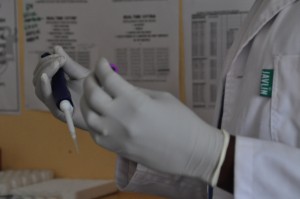 Linking HIV prevention strategies to contraception has a significant potential for public health benefit. However, many large observational studies to date have indicated an association between the use of combined oral contraceptives or depot medroxyprogesterone acetate and HIV acquisition and transmission. To date, little research has been designed to try and explain if hormonal contraceptive use causes cellular changes that make exposure to HIV more likely to result in infection. Genital tract immune cells are common portals of entry for HIV, yet little is known about the effects of these contraceptives on immune cells in the genital mucosa. Given mounting data suggesting women using systemic hormonal contraceptives may have increased susceptibility to HIV, this is a significant knowledge gap.
Linking HIV prevention strategies to contraception has a significant potential for public health benefit. However, many large observational studies to date have indicated an association between the use of combined oral contraceptives or depot medroxyprogesterone acetate and HIV acquisition and transmission. To date, little research has been designed to try and explain if hormonal contraceptive use causes cellular changes that make exposure to HIV more likely to result in infection. Genital tract immune cells are common portals of entry for HIV, yet little is known about the effects of these contraceptives on immune cells in the genital mucosa. Given mounting data suggesting women using systemic hormonal contraceptives may have increased susceptibility to HIV, this is a significant knowledge gap.
In collaboration with partners from Magee-Women’s Research Institute and Foundation at the University of Pittsburg, UZCHS-CTU, formally UZ-UCSF, has begun implementation of CHIC 02A: HIV-Target Cell Response in Women Initiating Various Contraceptive Methods in High HIV-Incidence Areas. CHIC 02A aims to quantify immune cells and HIV-tropic cell receptors in the lower genital tract of women, and to detect immunological and microbiological changes occurring with use of contraceptives that may alter susceptibility to HIV. The study is headed by Sharon Achilles, MD, PhD and Sharon Hillier, PhD of the University of Pittsburg, and Felix Mhlanga, MBChB, MMed of the University of Zimbabwe, and is taking place at Spilhaus CRS.
CHIC 02A received activation in early February 2014, with the first participant enrolled on 12 February 2014. 300 women will be enrolled. Enrollment is expected to continue through 2014. For more information, please contact Felix Mhlanga, MBChB, MMed at fmhlanga@uzchs-ctrc.org.


No comments yet.